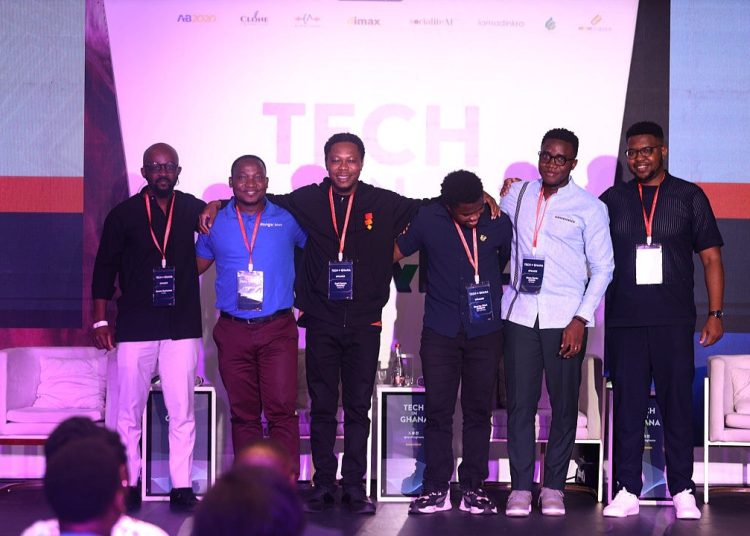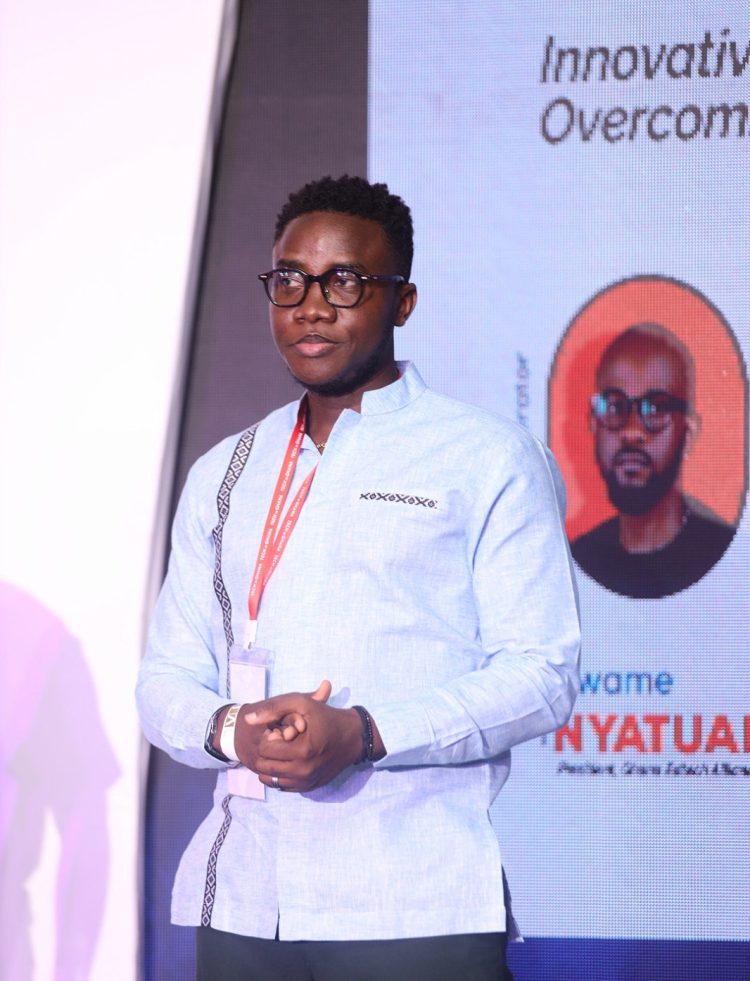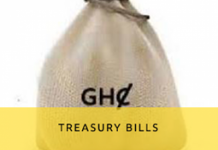The 14th edition of Tech In Ghana, held on November 26 and 27, 2024, proved to be an inspiring event that brought together tech enthusiasts, educators, and thought leaders to explore how technology can reshape education to be more inclusive for learners from diverse backgrounds.

One of the key moments of the event was the panel discussion titled “Innovative EdTech for Inclusive Education: Overcoming Barriers to Learning for Diverse Needs,” which featured Nana Darko Asiedu, the Country Manager for ALX Ghana. Asiedu offered a refreshing perspective on the scope and impact of educational technology (EdTech) in Ghana.
In his remarks, Nana Darko challenged conventional ideas about inclusion in education, emphasizing that the EdTech ecosystem in Ghana should not only focus on underserved communities. He highlighted that even students in urban centers, often seen as attending “grade A schools,” benefit from EdTech platforms like Udemy and Coursera. “The student in Accra you’ll classify as attending a ‘grade A school’ is also benefiting from being inclusive by enrolling in Ed-tech courses,” he said.
His statement underscored the multidimensional nature of educational inclusion. While advocating for greater attention to underserved communities, Nana Darko pointed out that students in urban areas are also reaping the rewards of EdTech. Many are gaining access to prestigious online courses from institutions like Stanford University, earning certifications that open doors to global employment opportunities.
Nana Darko’s vision for a thriving EdTech ecosystem extends beyond just access. He emphasized the importance of collaboration between key stakeholders, especially government and tech companies, to build a more inclusive and effective educational landscape. His call for partnership highlighted the critical role of collective effort in driving sustainable growth and innovation in the sector.

“The biggest driver of resources and transformational change is the government,” he said, advocating for policies that actively support EdTech initiatives.
He lauded existing efforts but urged further collaboration to ensure such programs are integrated into the education system, particularly in areas like robotics and other forward-thinking technologies.
Equally important, he emphasized the value of synergy within the private sector.
“How do tech, particularly Edtech companies, come together and not work in silos? That’s what I’m looking forward to seeing – partnership.”
His call to action resonated with the audience, underscoring the need for a united front in addressing the barriers to inclusive education.

The discussion highlighted a recurring theme at Tech In Ghana – leveraging technology to create opportunities for all. It’s not just about bridging the digital divide in rural areas, but also about empowering individuals in urban centres to compete on a global scale.
ALX, in partnership with the Mastercard Foundation, has been pivotal in equipping young Africans with in-demand skills, providing pathways to global opportunities while bridging local education gaps.
This year alone, ALX Ghana has enrolled 82,000 learners, including those from underserved communities, showcasing the expansive reach of its inclusive programs.
As Ghana continues to harness the potential of EdTech, it is evident that collaboration, policy integration, and a holistic approach to inclusion will be key. With events like Tech In Ghana sparking such insightful conversations, the future of education in the country is poised for transformation.
























































![[FREE FREE MONEY] Predict and Win a Guaranteed GH¢200 From Us EVERY WEEK](https://wordpress.ghanatalksradio.com/wp-content/uploads/2022/02/Predict-and-Win-Final-09-03-2021-218x150.jpg)
![[Predict & Win – 8th/Oct.] WIN A Guaranteed ¢200 From Us This Week](https://wordpress.ghanatalksradio.com/wp-content/uploads/2021/10/maxresdefault-16-218x150.jpg)
![[Predict & Win – 2nd] WIN A Guaranteed ¢200 From Us This Week](https://wordpress.ghanatalksradio.com/wp-content/uploads/2021/09/maxresdefault-50-218x150.jpg)
![[Predict & Win – 25th] WIN A Guaranteed ¢200 From Us This Week](https://wordpress.ghanatalksradio.com/wp-content/uploads/2021/09/maxresdefault-36-218x150.jpg)
![[Predict & Win – 18th] WIN A Guaranteed ¢200 From Us This Week](https://wordpress.ghanatalksradio.com/wp-content/uploads/2021/09/maxresdefault-23-218x150.jpg)







![[National cathedral] See full list of churches that have contributed since 2018](https://wordpress.ghanatalksradio.com/wp-content/uploads/2020/09/Ghana-National-Cathedral-GhanaTalksRadio-100x70.jpg)



